GHB: 10+ Facts You Didn’t Know About Gamma-hydroxybutyrate
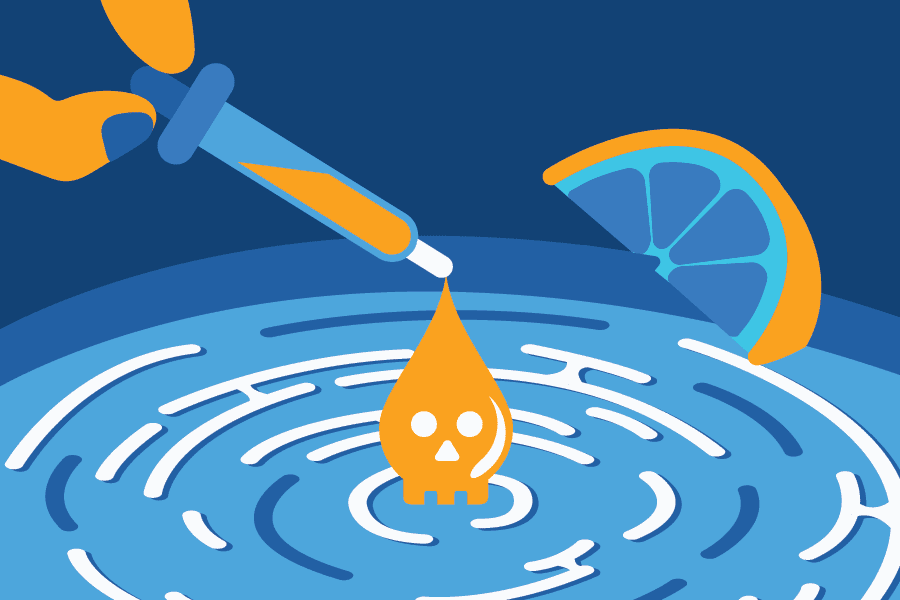

Trigger Warning: This article addresses the topic of being roofied, which involves the involuntary administration of substances without consent, and includes discussions about sexual assault. Reader discretion is advised
Gamma hydroxybutyrate (GHB) is a depressant that can cause both a high and hallucinations.
GHB is known to be popular among teens and young adults at “raves,” clubs, and parties. Sometimes, it is also misused by bodybuilders because they are under the belief that it can build muscle and cause weight loss.
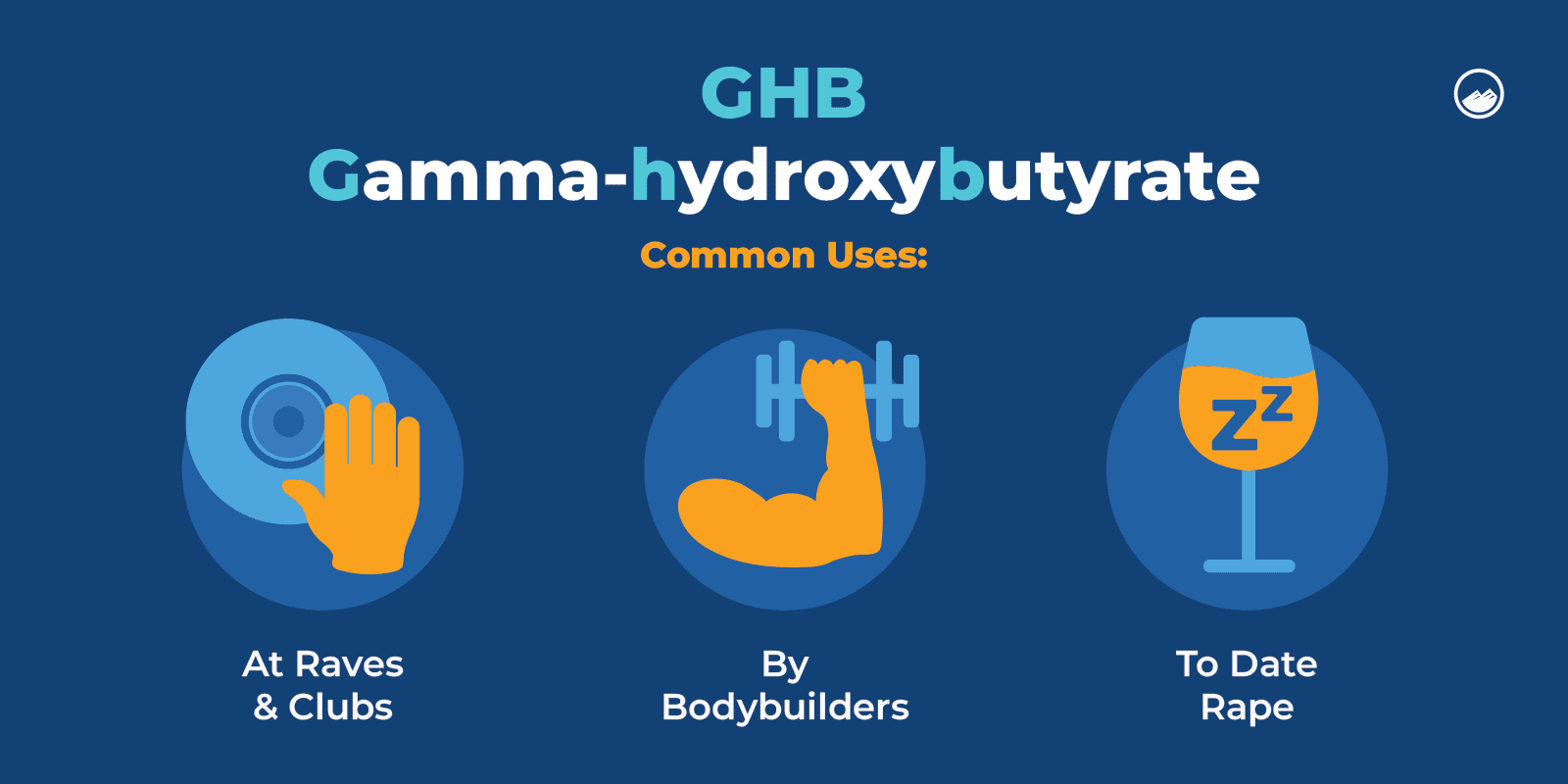
Usually, this drug is made in home labs for the purpose of getting high, making it extremely dangerous and putting users and risk of serious side effects and grievous bodily harm.
Gamma hydroxybutyrate acid is another name for the drug sodium oxybate, also known as Xyrem. As a prescription drug, it is used to treat symptoms of narcolepsy, like sleepiness and muscle weakness.
GHB has been described as a date rape drug, as its effects can make people extremely vulnerable to sexual assault.
GHB stands for gamma-hydroxybutyrate.
GHB is also another name for the generic drug sodium oxybate.
Common street names for GHB include:
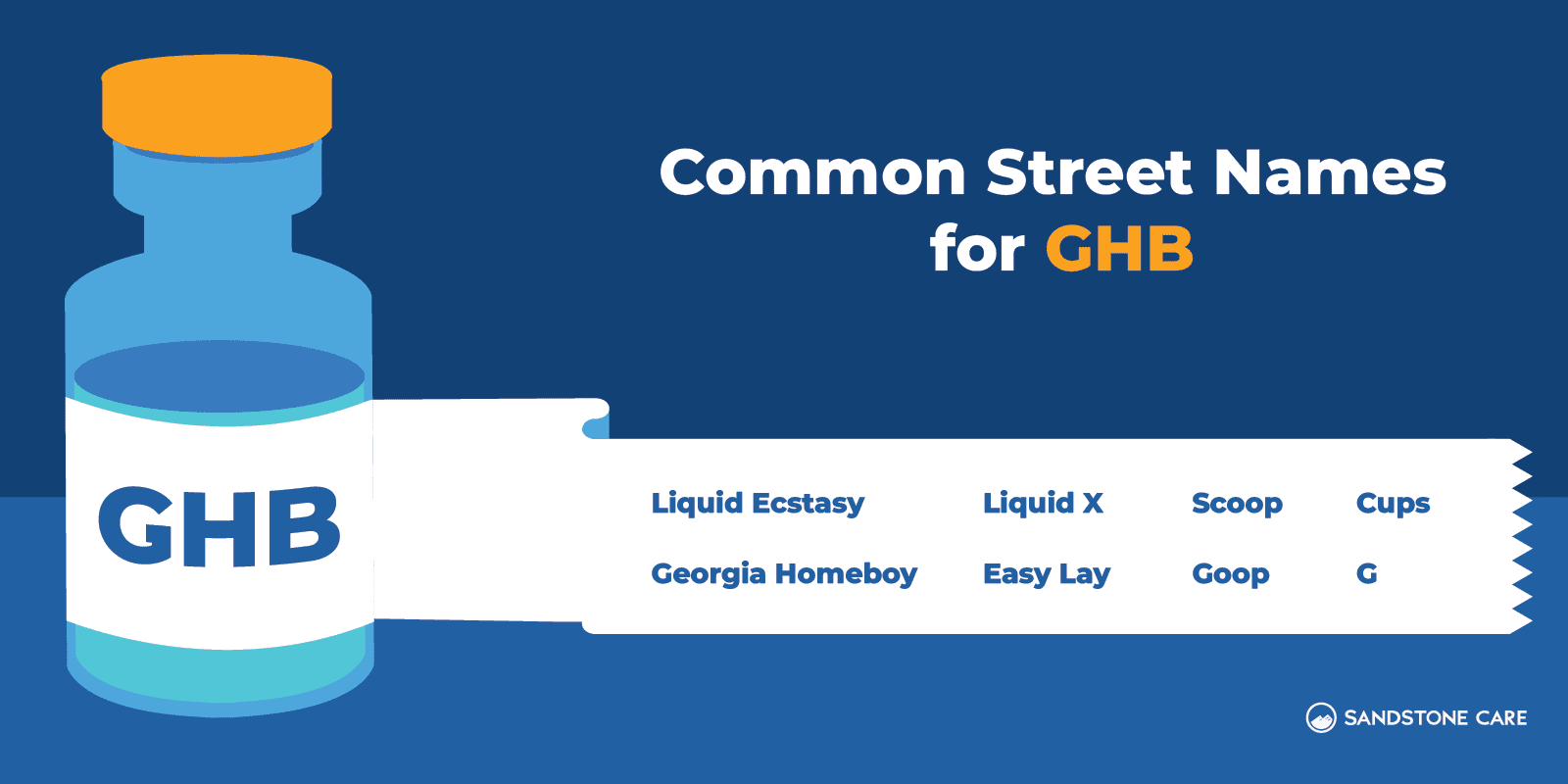
GHB is created from a combination of gamma butyrolactone (GBL) and sodium hydroxide or potassium hydroxide.
GHB is usually available as a clear liquid or a white powder that can be dissolved into a liquid like water, juice, or alcohol.
When it is sold as a liquid, it may also come in small vials or small bottles.
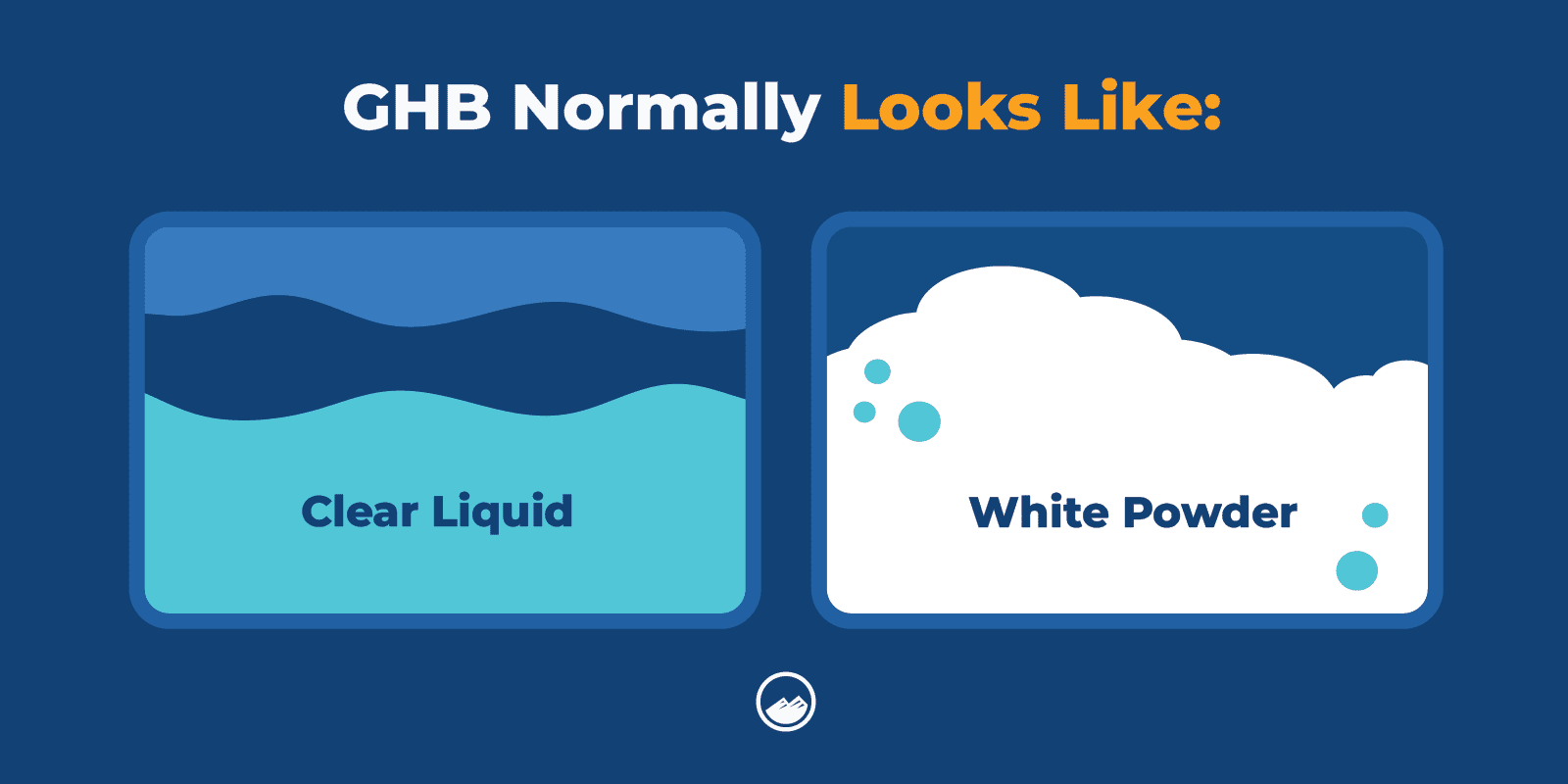
GHB is usually swallowed, whether it is in liquid or powder form.
In addition to being taken at parties, bodybuilders and fitness enthusiasts sometimes take GHB because they think it helps them build muscles or lose weight.
Other ways that people take GHB include mixing it into alcoholic drinks and other beverages, and ingesting it along with other drugs like marijuana.
GHB is named a Schedule I Controlled Substance, meaning it has a high potential for abuse, no currently accepted medical use in the United States, and a lack of safety for use under medical supervision.
However, there are FDA-approved GHB products that are Schedule III substances, like Xyrem.
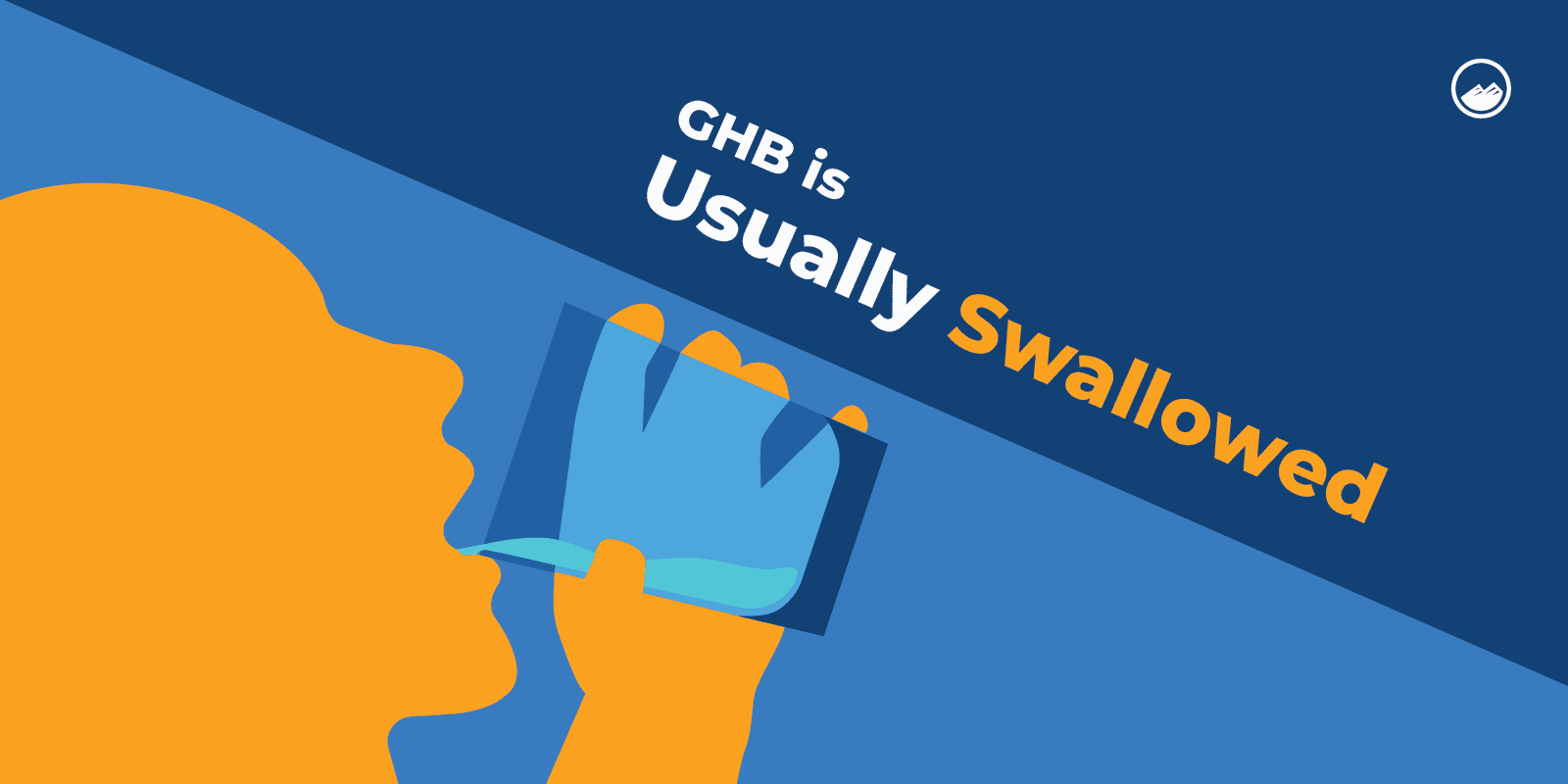
GHB is most commonly misused to produce a euphoric high but has also become known as a date rape drug because it can cause a person to recall no memories of events while under the influence.
If a person is unknowingly given GHB, it can increase passivity and can cause amnesia, especially at high doses.
The standard dosage for GHB can range from 1 to 5 grams, depending on how pure the concentrations are.
After taking GHB, a person can feel euphoric, drowsy, confused, and even experience hallucinations.
They also may experience a loss of inhibitions, which can place them in dangerous situations. Some people who take GHB can also lose consciousness and pass out from the sedative effects of the drug.
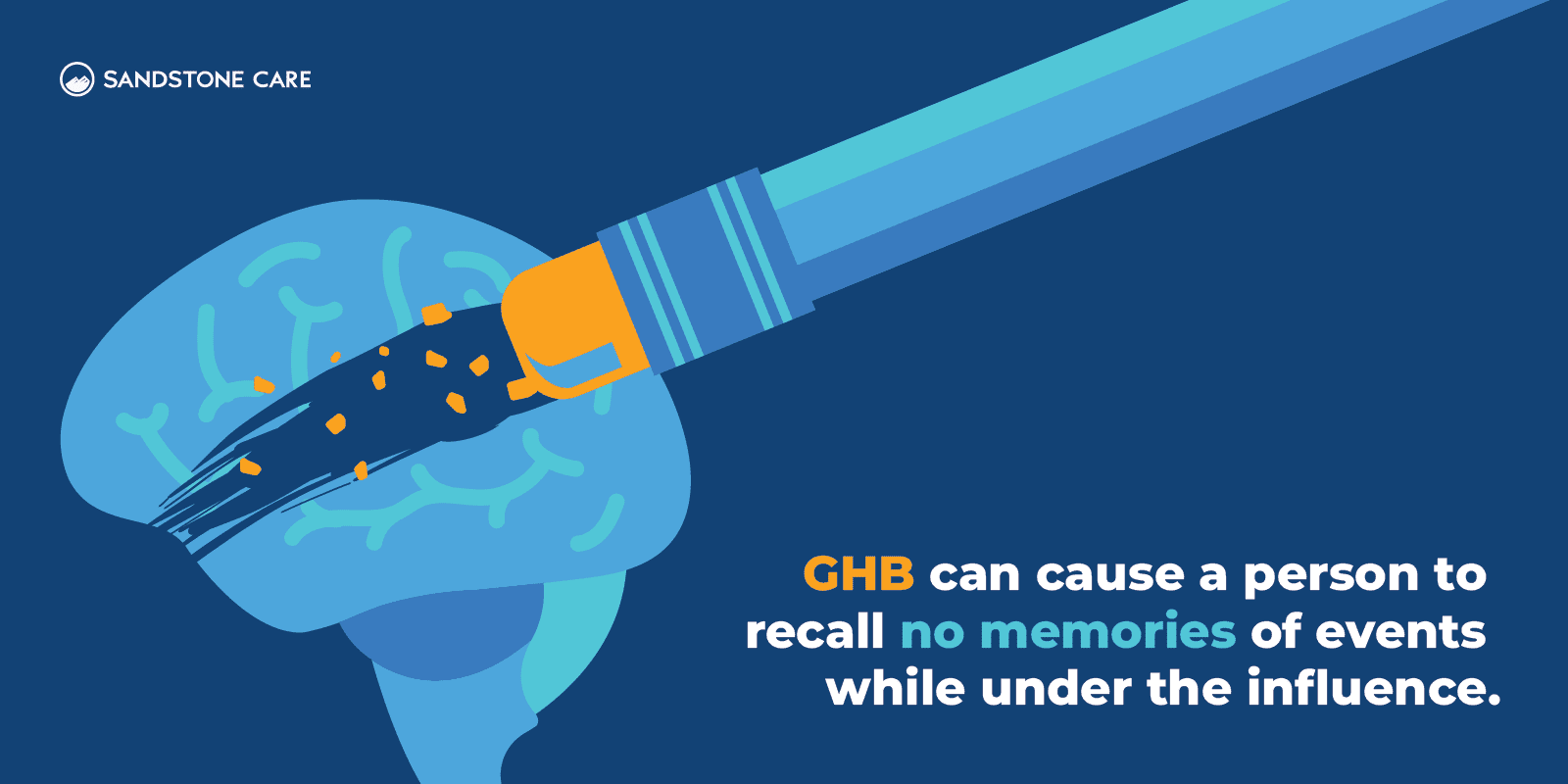
One potential effect of GHB can be decreased anxiety, but it is not used or approved as a treatment for anxiety.
Many teens and young adults who engage in substance misuse often try to self-medicate or cope with underlying problems or mental health conditions.
For some, GHB can worsen the symptoms of anxiety.
Mixing GHB with alcohol or other drugs is very dangerous and, in some cases, can be life-threatening.
GHB and alcohol are both nervous system depressants, causing breathing and heart rate to slow.
Mixing GHB with prescriptions can also be very harmful.
You should always talk to your doctor about any medications, herbal products, or supplements you are taking to get medical advice and discuss potential drug interactions.
Mixing GHB with prescriptions can cause serious adverse effects and put a person at higher risk of overdose.
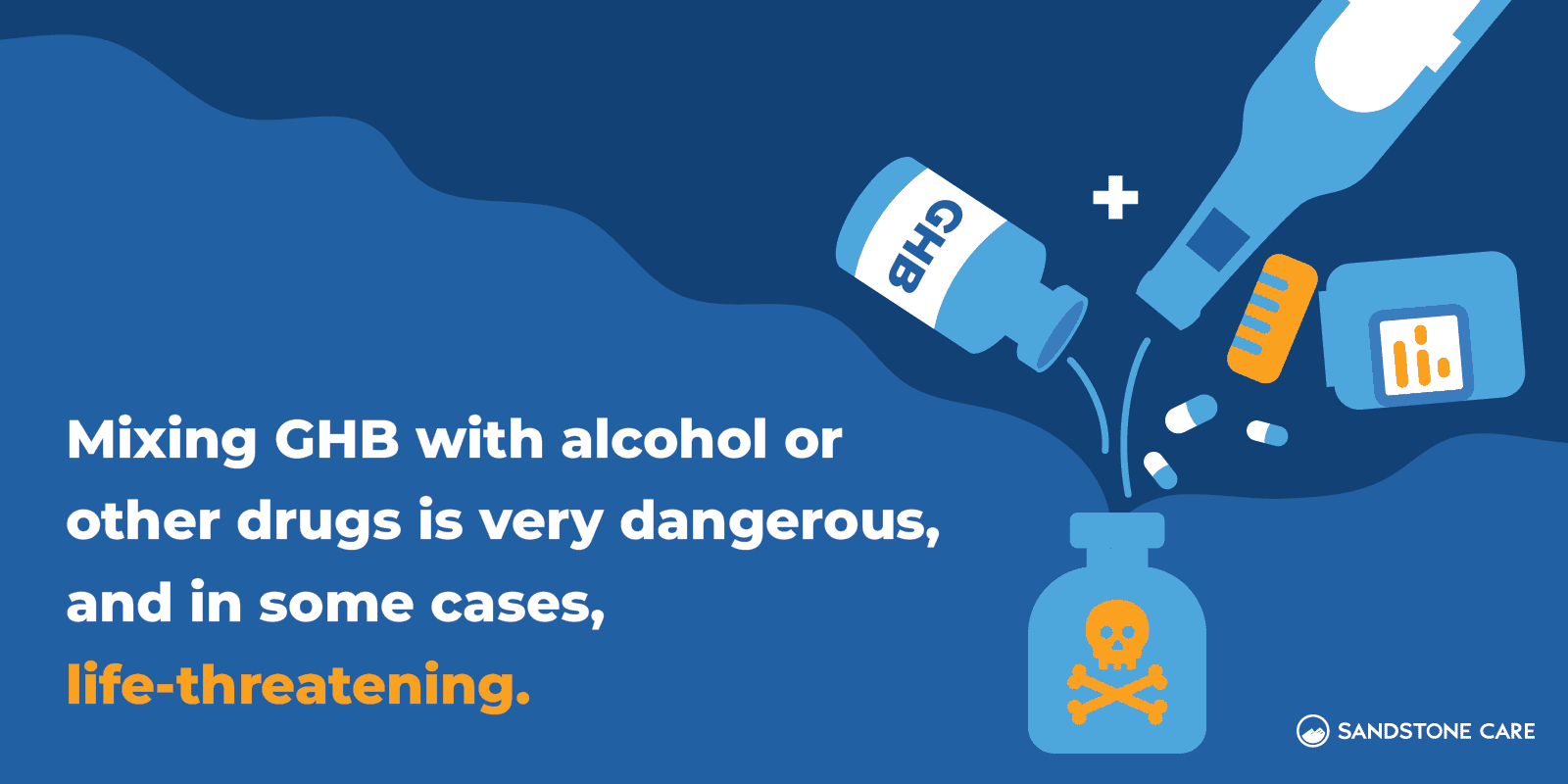
Some common effects of GHB can include:
GHB usually takes effect within 15 to 30 minutes of ingesting it, and its effects can last anywhere from 3 to 6 hours.
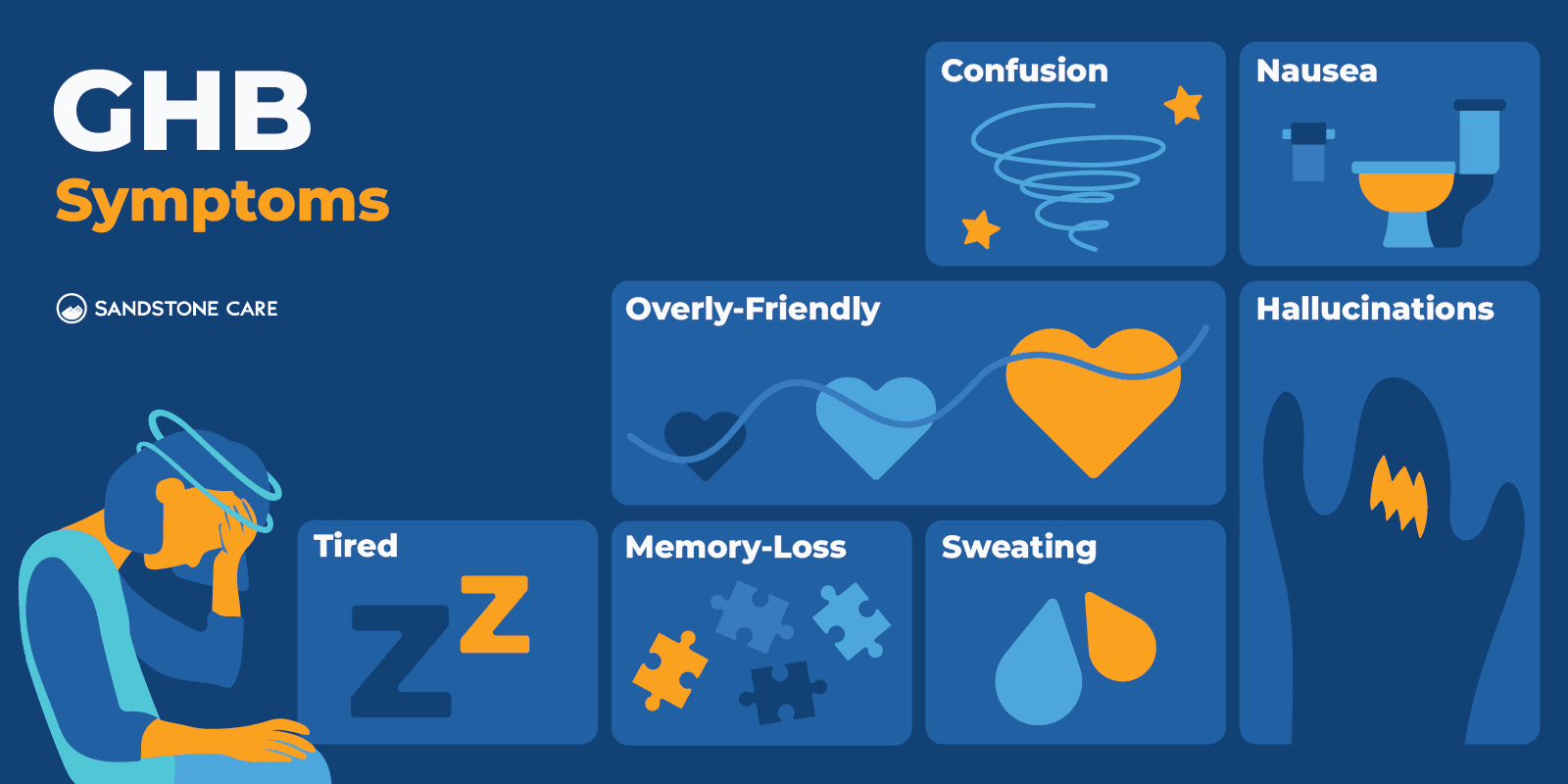
One of the main long-term risks of GHB use is dependence and addiction. However, GHB can have numerous effects on one’s physical and mental health beyond drug abuse.
Long-term effects of GHB can also include:
Physical effects of GHB can involve:
GHB occurs naturally in the central nervous system (CNS) in small amounts.
GHB produces depressant effects, meaning it slows down brain activity.
GHB can affect a variety of different neurotransmitters, including gamma-aminobutyric acid (GABA), which is a brain chemical that inhibits brain activity and can make a person feel drowsy or relaxed.
The main toxic effect of GHB is the sudden onset of coma, or loss of consciousness, followed by an abrupt awakening after several hours.
Yes, regular use of GHB can lead to addiction, and chronic use of GHB can cause a person to experience withdrawal symptoms if they stop or suddenly decrease their drug use.
Some of the criteria used to diagnose a person with a substance use disorder can include:
It is important for people to educate themselves on the dangers of GHB.
GHB can cause negative effects on one’s physical and mental health that can include but are not limited to; loss of consciousness, hallucinations, respiratory distress, seizures, depression, amnesia, and coma.
Individuals who take GHB, especially as a recreational drug, are also at risk of developing an addiction or dependence.
Additionally, those who take GHB, knowingly or unknowingly, are at risk of sexual assault.
A person on GHB will often exhibit unusual behavior. They may become extremely friendly, excited, or even aggressive.
A person will often forget what they do while under the effects of GHB, as it can cause memory loss and amnesia.
Others may abuse GHB to produce euphoric effects and feel relaxed and calm.
Yes, a person can overdose on GHB.
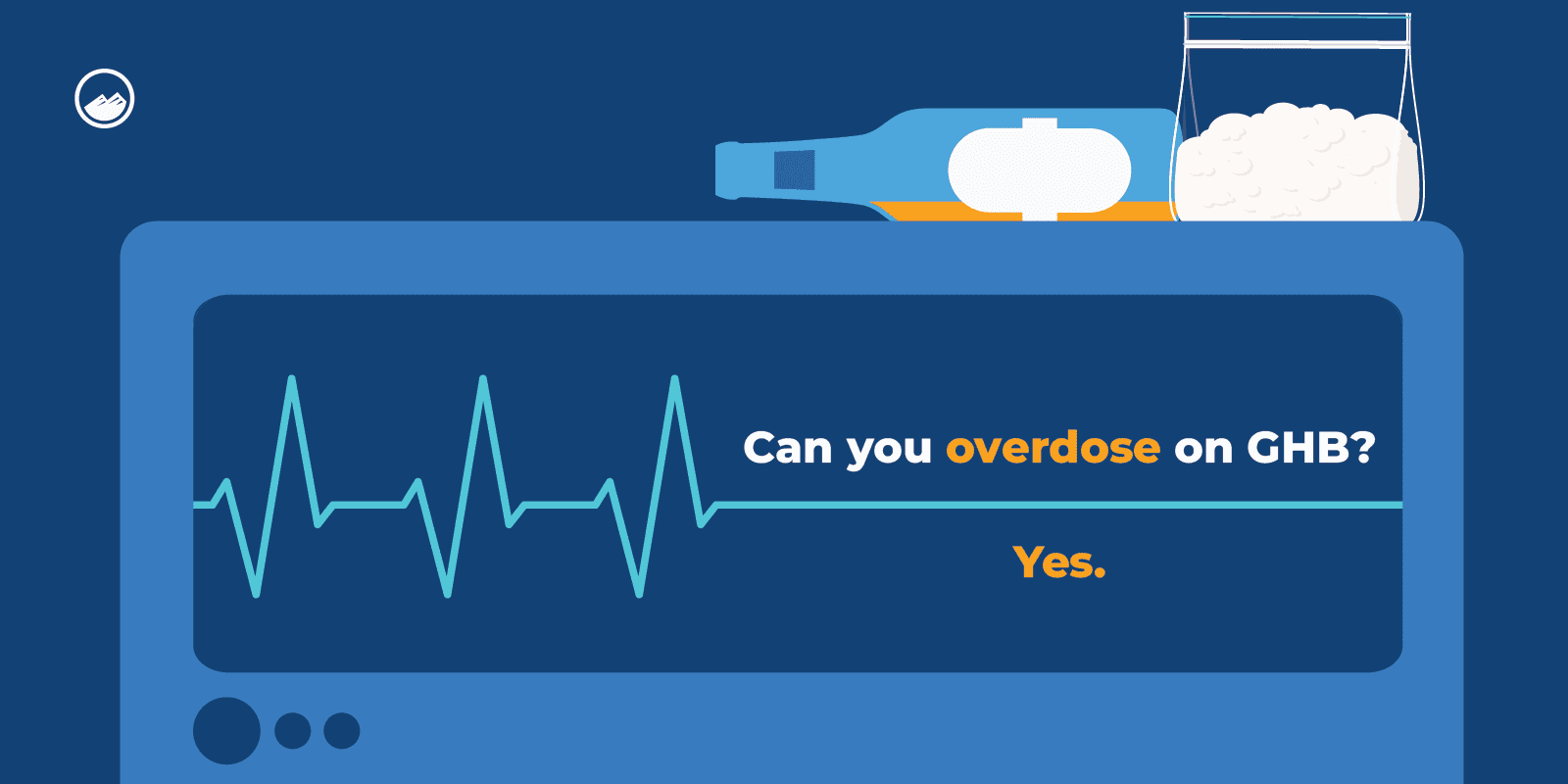
GHB overdose can result in symptoms that include:
In severe cases, an overdose of GHB can result in a coma and potentially be life-threatening.
The difference between a recreational and fatal dose of GHB is small.
According to Current Neuropharmacology, 80-100 mg/L commonly causes intoxication or drunkenness, while 300-500 mg/L can quickly lead to respiratory depression or circulatory collapse and result in death.
It’s also important to note that the side effects of GHB can also put users at risk of serious bodily harm or death from their lack of inhibition in dangerous situations.
GHB can cause effects that include increased passivity and amnesia and can make a person lose consciousness, especially when mixed with alcohol.
This is one of the reasons GHB is called a date rape drug or a roofied drug.
Because it is odorless and colorless in liquid form, it makes it especially easier for predators to slip into solvents and other people’s drinks without them even realizing it.
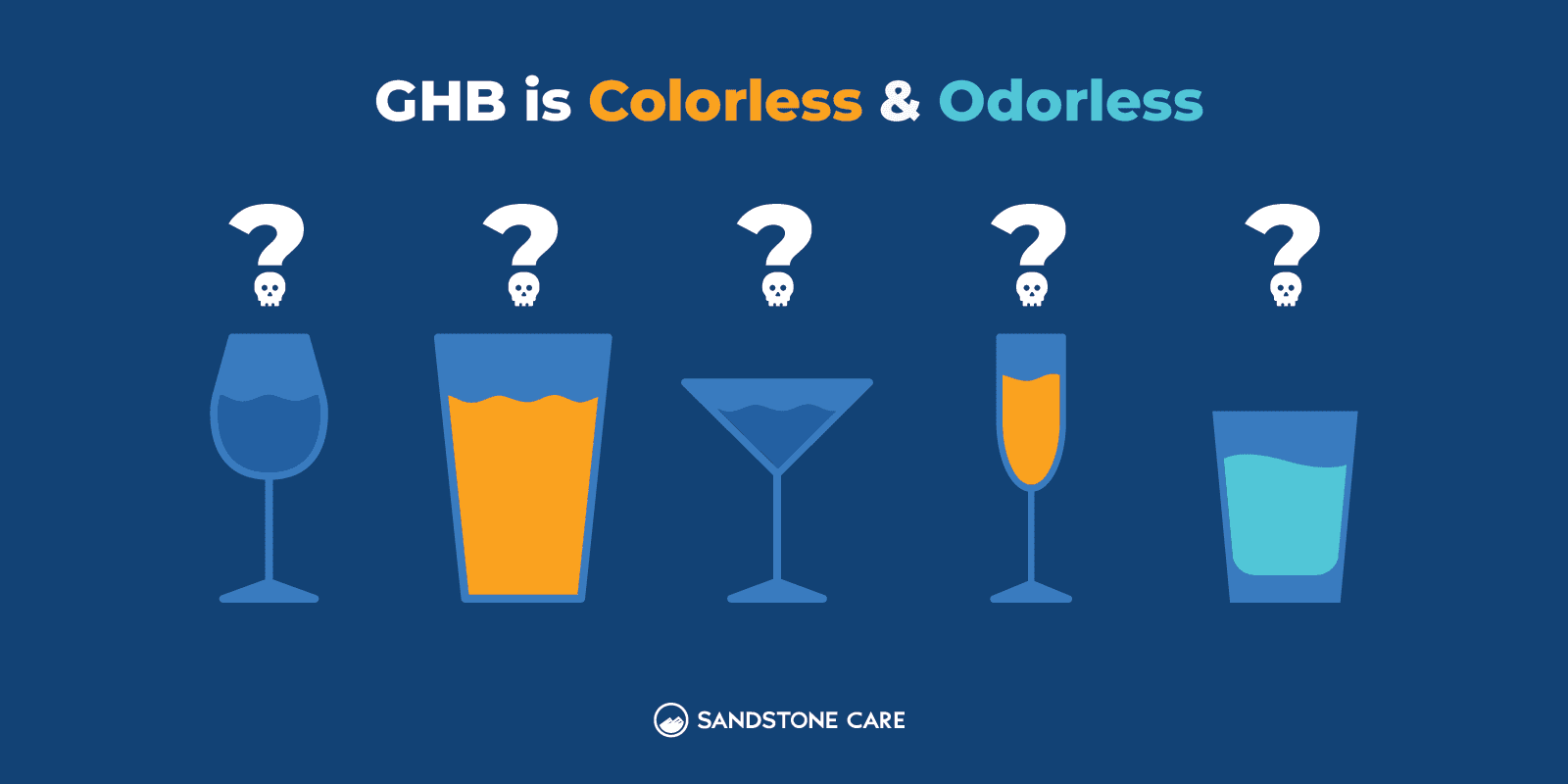
Date rape refers to non-consensual sexual activity with a person whom you may know.
Date rape is most common in settings such as parties, clubs, or bars. A person will often get handed a drink that is spiked with drugs like amphetamines, benzodiazepines, or GHB to intoxicate them and make the person vulnerable to sexual assault.
Given this information, young people should become aware and learn ways that can help protect them in similar situations.
Steps a person can take to protect themselves from date rape can include:
It is important to know that if you or a loved one has ever been drugged or sexually assaulted, it is not your fault and that there is help available to you as you recover.
If you or someone you know thinks they have experienced sexual assault, reach out to your local authorities and go in for medical treatment as soon as possible – especially if there are possibly unknown drugs in your system.

A person who has been given GHB will commonly feel very drunk or intoxicated when they have consumed very little or no alcohol.
They may feel sudden changes like drowsiness, nausea, sweating, disorientation, or blurred vision.
They may also become extremely friendly or act in unusual ways.
If you or a friend seem to be acting out of character when they have had little or nothing to drink, it is a sign that they may have been drugged, and you should reach out for help right away.
If you are out with friends and you believe they have been drugged, there are important ways you can help them:
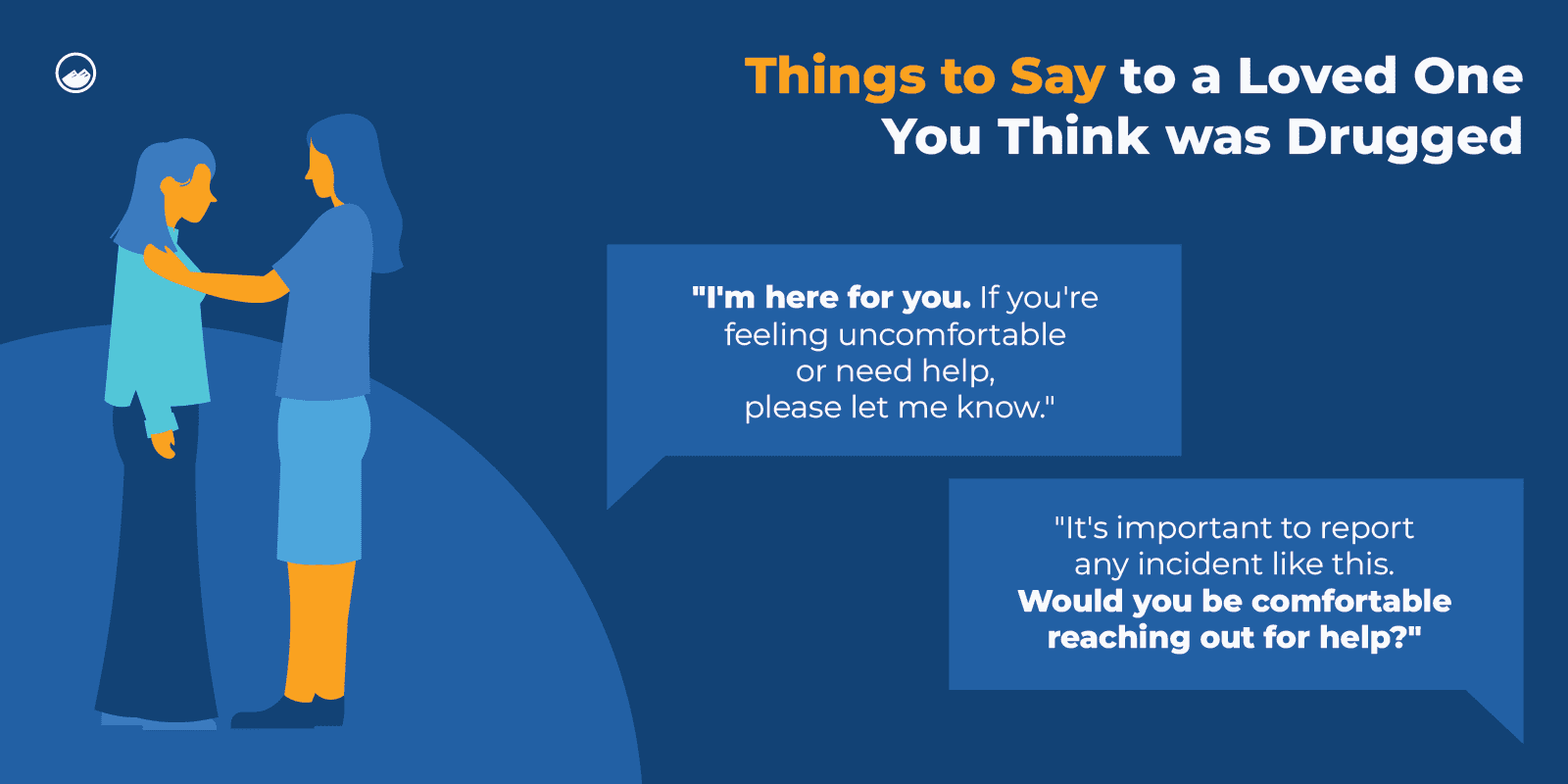
After ensuring the person’s safety, they should report the incident to the police. If it occurred in a public setting, there is a chance someone may have seen something or that it was recorded.
Reporting the incident can help find the person who drugged the victim and can help prevent it from happening to more people.
If you or a loved one has been drugged or sexually assaulted, there are important steps to take for safety.
If you or someone close to you has been drugged and raped, seek medical care immediately. A trusted person can take you to the hospital or call 911.
A person’s first instinct may be to shower or change clothes. While it is extremely difficult not to do so, you should try not to, as a medical professional may be able to collect evidence of the assault from your body.
When you are at the hospital, if it hasn’t been done already, you can ask them to take a urine sample to test for any drugs in your body.
After a sexual assault, many difficult feelings can follow. A person may feel guilt, shame, fear, and many other emotions from such a traumatic experience. It is important to know that sexual assault is not your fault.
If you have experienced sexual assault, you must talk to someone and get help.
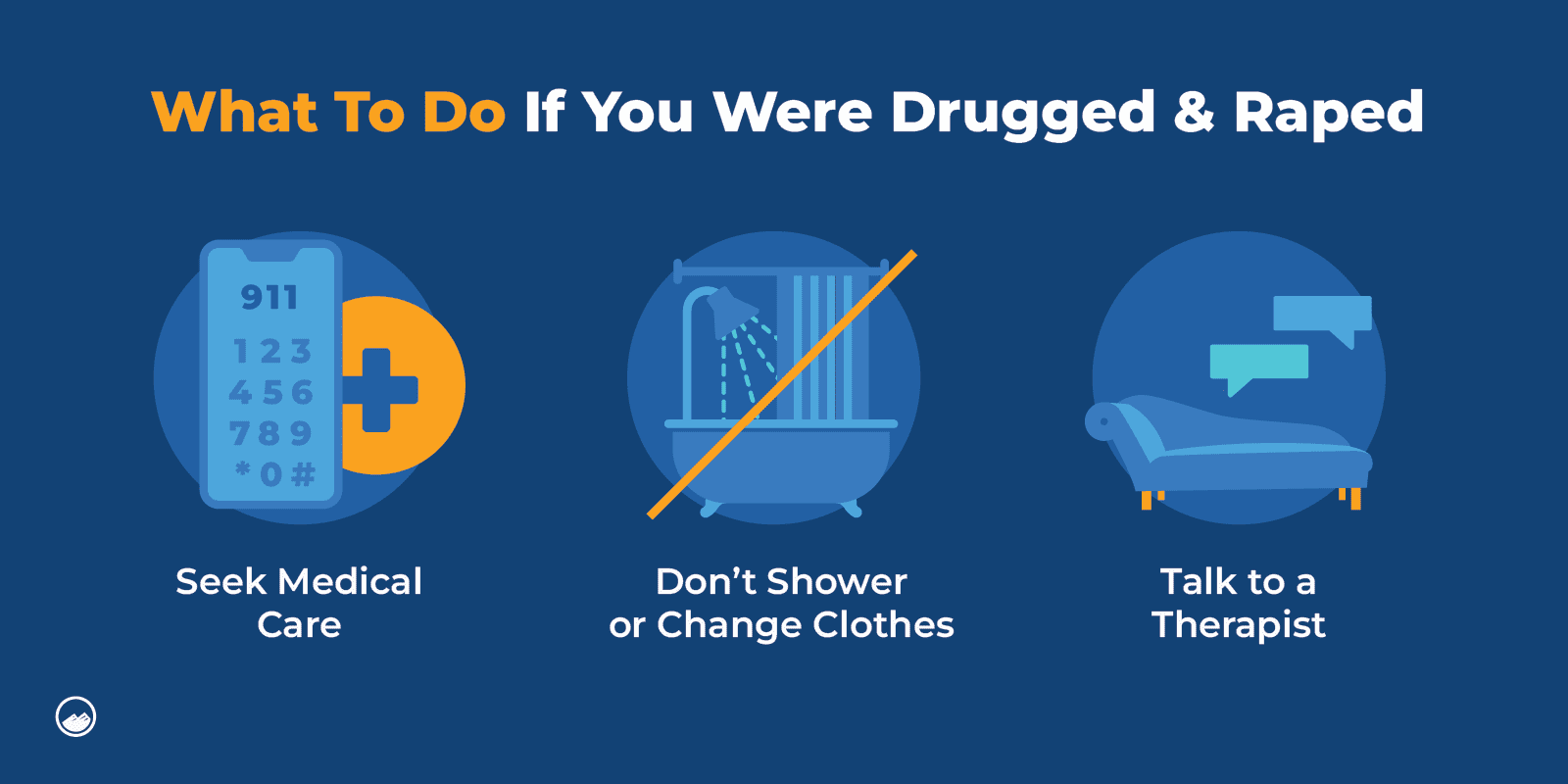
The National Sexual Assault Hotline at 1-800-656-4673 is available as a free and confidential resource for individuals seeking help.
Not only can GHB affect a person’s physical health, but their mental health as well.
GHB can cause users to feel confused and experience unusual and disturbing thoughts.
Taking GHB can also worsen symptoms of mental health disorders such as anxiety or depression.
GHB can also cause a person to experience hallucinations and psychotic thoughts.
When GHB is used as a date rape drug, victims may experience long-term trauma from the event that can cause anxiety, PTSD, depression, and more.
One of the biggest steps to recovery is recognizing that you need help for substance use.
Signs a person may need treatment for GHB use can include:
Detoxification is usually one of the first steps in the recovery process for GHB addiction. A medically-supervised detox can help individuals manage withdrawal symptoms in a safe and controlled setting.
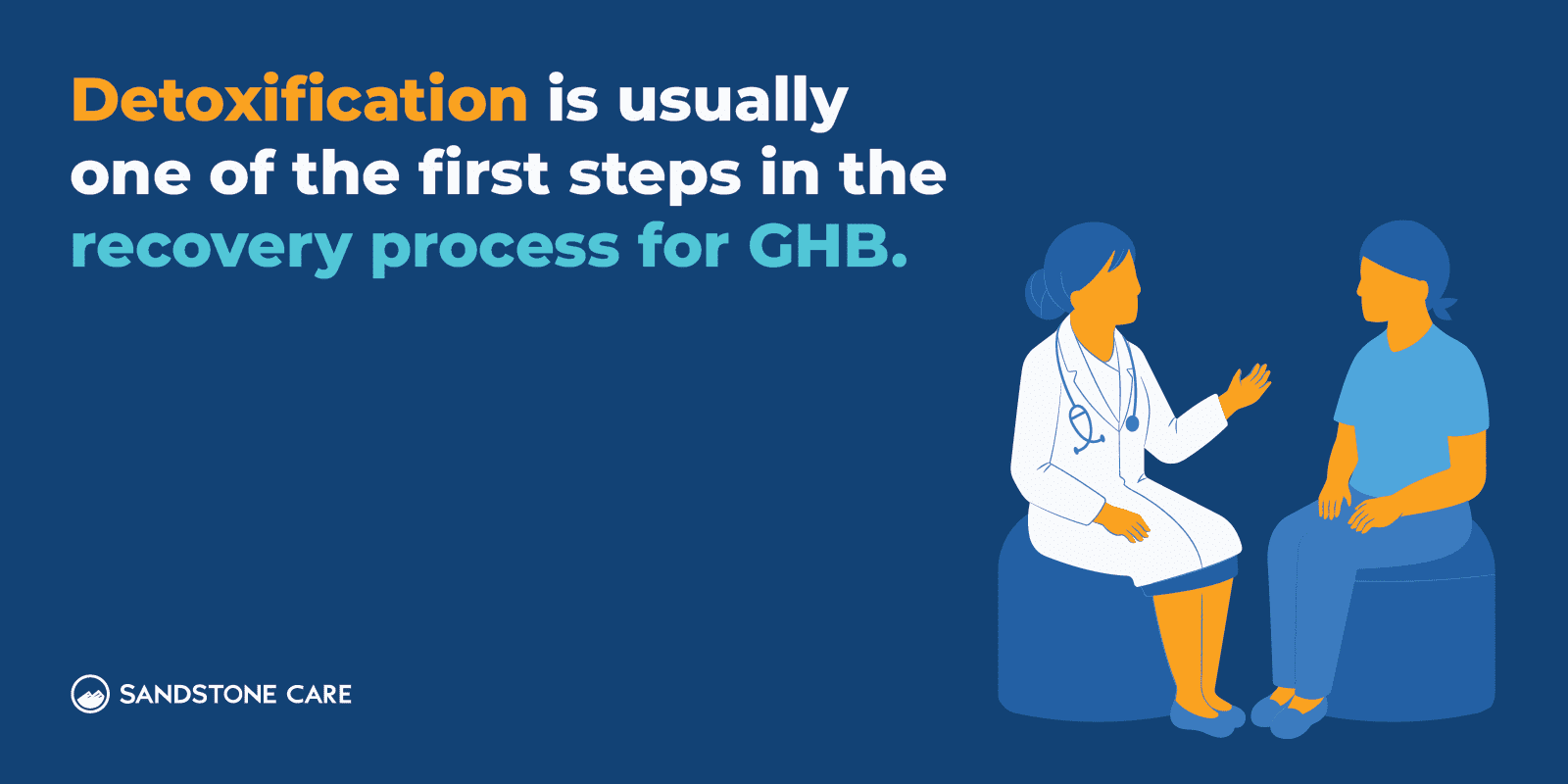
A person may then go to inpatient or outpatient treatment, depending on the severity of the addiction and a number of different factors.
In whichever treatment setting a person is in, common behavioral therapies like cognitive behavioral therapy (CBT) have been shown to be effective in treating mental health disorders, substance use disorders, and addiction.
CBT can help people learn how their thoughts, feelings, and behaviors are connected and use the tools and coping mechanisms they learn to restructure unhealthy behaviors.
GHB withdrawal symptoms can include:
There is currently no antidote available for GHB intoxication.
The effects of GHB can last up to seven hours.
In urine, GHB can be detected for up to 12 hours after last use, in blood for up to 8 hours, in saliva for around 6 hours, and in the hair for around a month.
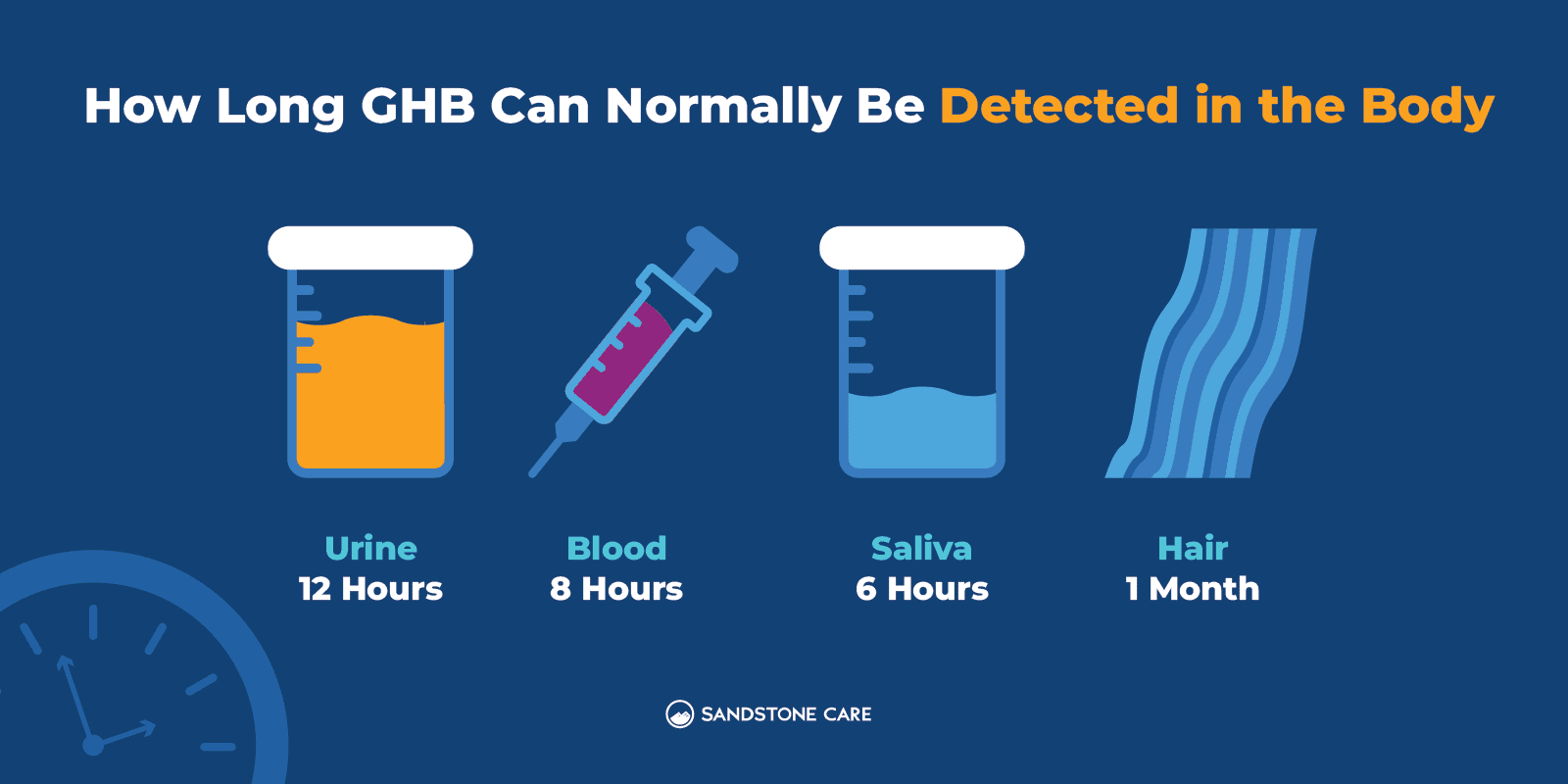
However, a variety of different factors can affect the length of time it takes for the body to process GHB. These factors can include but are not limited to a person’s age, weight, metabolism, how much they took, whether or not they’ve taken GHB before, and if they mixed it with any other substances or stimulants.
FAQ
Our goal is to provide the most helpful information. Please reach out to us if you have any additional questions. We are here to help in any way we can.
GHB analogs, or compounds with a molecular structure similar to GHB, can cause irritation to the skin and eyes.
Additionally, a common effect of GHB involves changes in vision, including blurry vision.
Driving after taking GHB is extremely dangerous.
A person who has taken GHB can suddenly fall asleep, lose consciousness, and not remember things that they have done.
Driving on GHB can lead to life-threatening consequences and can harm many people.
GHB can cause serious psychological effects, along with its physical effects.
The term psychosis refers to conditions that affect the mind, where a person loses contact with reality, according to the National Institute of Mental Health.
GHB use has been connected to psychosis, where a person becomes extremely confused and experiences delirium and hallucinations.
Yes, GHB can cause amnesia or memory loss.
Whether knowingly or unknowingly, a person who has taken GHB often forgets what happened when they took it.
This is one of the reasons this drug is extremely dangerous and is used by sexual predators.
Both GHB and its analogs are illegal.
There are approved GHB products by the Food and Drug Administration that are Schedule III Controlled substances, such as Xyrem, a medication used to treat symptoms of narcolepsy. There are no current over-the-counter versions of GHB that are legal.


GHB is an extremely dangerous depressant that can put individuals at risk of respiratory depression, coma, and sexual assault. Sandstone Care is here to support teens and young adults with mental health and substance use disorders.